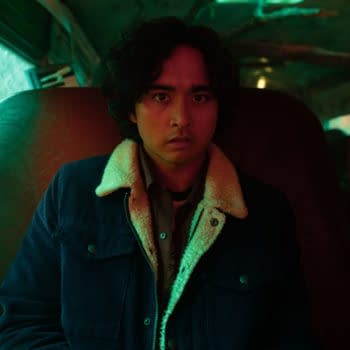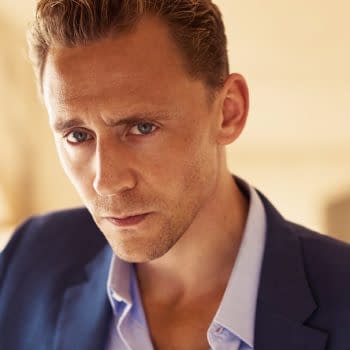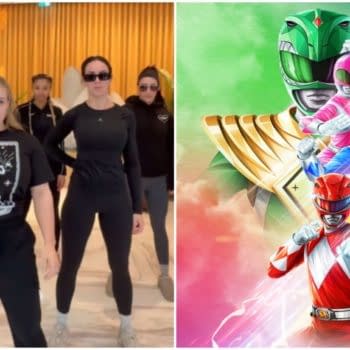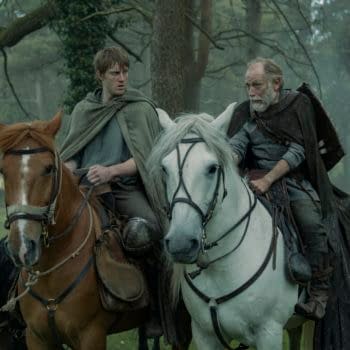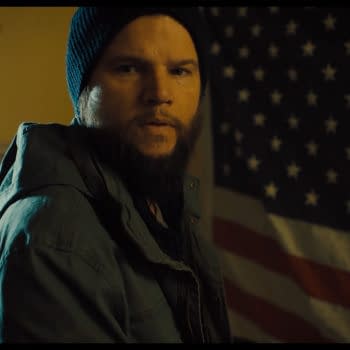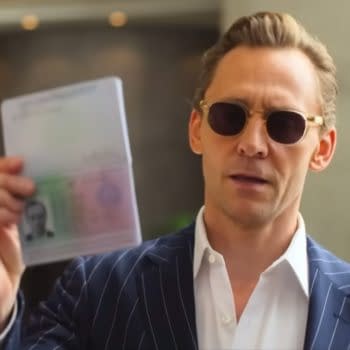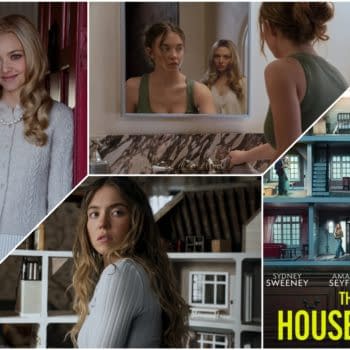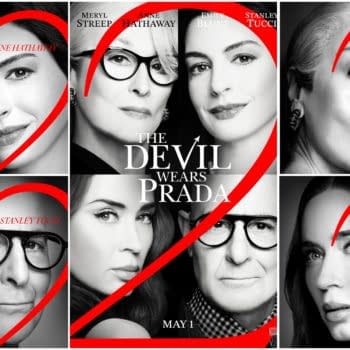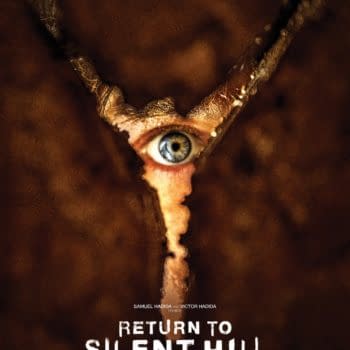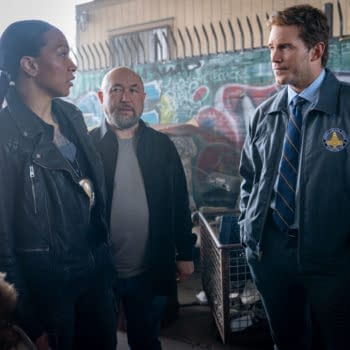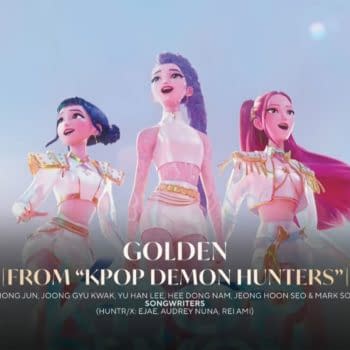Posted in: Exclusive, Interview, Movies | Tagged: Andrew Bowser, Cineverse, interview, Onyx the Fortuitous, Onyx the Fortuitous and the Talisman of Souls
Onyx the Fortuitous Creator on the Horror Comedy's Love Letter to 80s
Onyx the Fortuitous and the Talisman of Souls director and star Andrew Bowser talks to Bleeding Cool on horror comedy, casting & more.
It's hard to believe the journey Andrew Bowser has gone through in Hollywood. From his humbler roots in his physical debut in the video game Death Gate in 1994 and later finding his way to the crime drama series Homicide: Life on the Street in 1996, he's emerged as a jack-of-all-trades in front and behind the camera. While most of his work has been directing, acting, and writing, he's also contributed as an editor, producer, and cinematographer. Along the way, he's become a creative force, creating the character Onyx as an extension of himself and generating new adventures for the viral sensation. His latest is Cineverse's Onyx the Fortuitous and the Talisman of Souls, which follows the title character struggling to find purpose with his soul-devouring side gig when he receives a coveted invitation to the mansion of his idol, Bartok the Great (Jeffrey Combs). Here, he joins Bartok and his mysterious delegation to raise the spirit of an ancient demon for a once-in-a-lifetime ritual. The writer, director, and star, in accordance with the SAG-AFTRA interim agreement, spoke with Bleeding Cool about how the film is a love letter to the classic horror comedies of the '80s, including reuniting Re-Animator (1985) stars Combs and Barbara Crampton, the inspiration behind the character, and any potential long term plans.
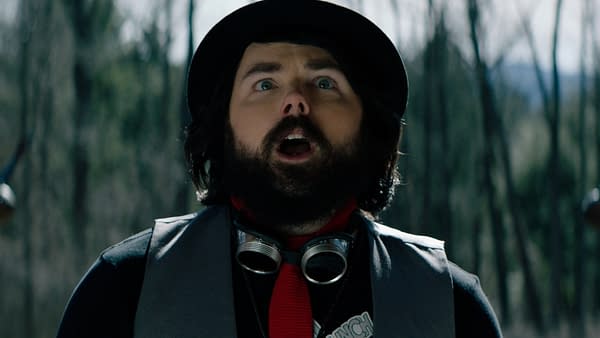
Creating the Enduring Character of Onyx
Bleeding Cool: What's the inspiration behind 'Onyx the Fortuitous and the Talisman of Souls?'
Bowser: The inspiration behind the character is a bit different than the inspiration behind the film. The inspiration behind the character is investigating myself as a fifth grader, the insecurities and anxiety I felt in middle school, and then putting that into characterization and a comedic persona to help me process some of that. The film's inspiration is the movies I watched at that age. A lot of the 80s horror comedies, 'Fright Night' (1985), if you consider 'Re-Animator' to be a horror comedy, 'Gremlins' (1984) and 'Night of the Creeps' (1986). This film is taking my character of Onyx and crossing that stream with my love for '80s horror comedy.
I'm guessing that helped drive the casting of Jeffrey and Barbara.
Without a doubt, because of the films they made with Stuart Gordon, some people might not think they're like the 'Onyx' movie. Still, they are in the sense that they had emotionally grounded characters, experiencing absurd circumstances. That's precisely what happens in the Onyx film. We don't undercut the circumstance by winking to the audience or trying to play down the stakes. We lean into it, and as things get more absurd, the characters become more emotionally grounded and responsive to what's happening around them, which always occurred in the Stuart Gordon and Jeffrey Combs films.
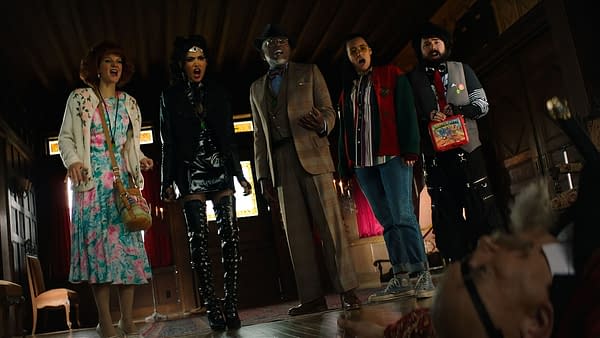
What went into the casting of the other roles? Was it an audition process, or did you have specific names in mind?
A couple of them were people that I had in mind. I always pictured TC Carson playing Mr. Duke, but then our casting director, Dillon [Jury], found a lot of the other ensembles. It was essential to find people who could be their own type of weird because you're in a world focused on Onyx as the main character. Not be redundant in the energy and relationship to Onyx, and maybe even help neutralize some of Onyx's energy because he can be a bit much sometimes. It was essential to find the ensemble that triangulated in the correct way around him. Everybody was in the right space tonally and having the same fun I had.
Since this was your feature debut as a director, was it an intimidating experience before you settled in, or was it something you learned from your TV experiences and directing shorts becoming part of your natural evolution?
It was a natural evolution because I started as an actor in Washington, D.C.. I began to write and direct in high school and then went to film school. I never stopped acting, and I would always make my videos before I started editing and acting my videos. It was a natural progression. It's much easier for me and my personality to be writing, directing, acting, and editing than it is for me to solely be an actor. I could work with someone that would make me feel comfortable, but I'm not the best at giving myself experience as an actor. I like seeing the whole and having a hand in the entire process. I've done that since I was little, so the film is a natural extension of that skill set.
Did you ever consider someone else to play a lead, or was it did you always picture yourself?
I had ideas over the years that we're going to be a horror comedy throwback that might not be an 'Onyx' film, and I even had a couple of pitches that I looked through recently that were similar, but that was not going to star Onyx. At a certain point, I realized the best way to step into that subgenre I love would be for Onyx to be the through line. Once I settled on this specific narrative of 'The Talisman of Souls,' it was always an Onyx movie.
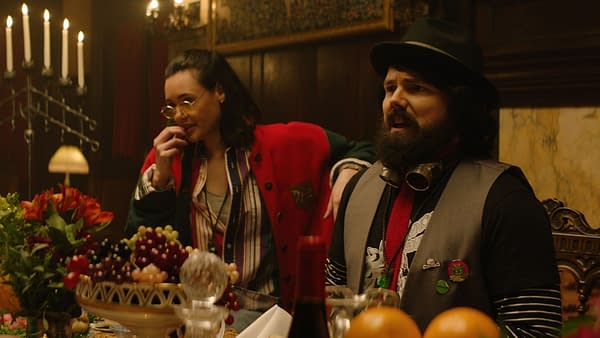
Are there long-term plans for expanding Onyx to future stories, or does it depend on the reception?
There's no wait-and-see as far as I'm concerned. I would love to make another 'Onyx' movie and have him go on another adventure. There's some wait-and-see regarding how this film is received and if an audience wants a second film. I hope there is because our experience on the festival circuit has been rewarding. It seems people have responded to this character and the world we will build. Fingers crossed on if you would see a second or third film. Maybe we can get all the way to 'Onyx 5' and send him to space, something like that [laughs].
What do you feel your biggest strength is as many hats as you wear?
Weirdly, the most exercised and honed skill I have is editing. That informs every other part of me. In my case, the editor is the boss of the writer, director, and actor. I have been thinking about myself as an editor from the beginning. That's because I've done a lot of editing and learned it when I started film school in 2000. That's how I feel an intimate connection with film by being the editor, and every role for me falls in line after that. Editing informs everything: how I might cover a scene or how I write a joke. I'm writing a joke with a certain cut or close-up in mind.
What do you find are your biggest influences in your creative process?
I have found, especially with 'Onyx,' my biggest influence is people with a viewpoint. That point of view informs the tonal space of the entire project, like Paul Reubens and his Pee-Wee Herman. In movies like 'Monster Squad' (1987), [filmmakers like] Fred Dekker and Shane Black have a strong perspective that informs the whole world. I like things with tonal consistency; sometimes, that only comes from someone who has created a persona or character and knows exactly how that character sees the world around them. The narrative for that feature and its tone align with their P.O.V. I respond to that, especially a lot like sketch comedy, like 'The Kids in the Hall,' or their point of view informs the entire color of the world around them. 'Kids in the Hall' is a huge influence on 'Onyx.'
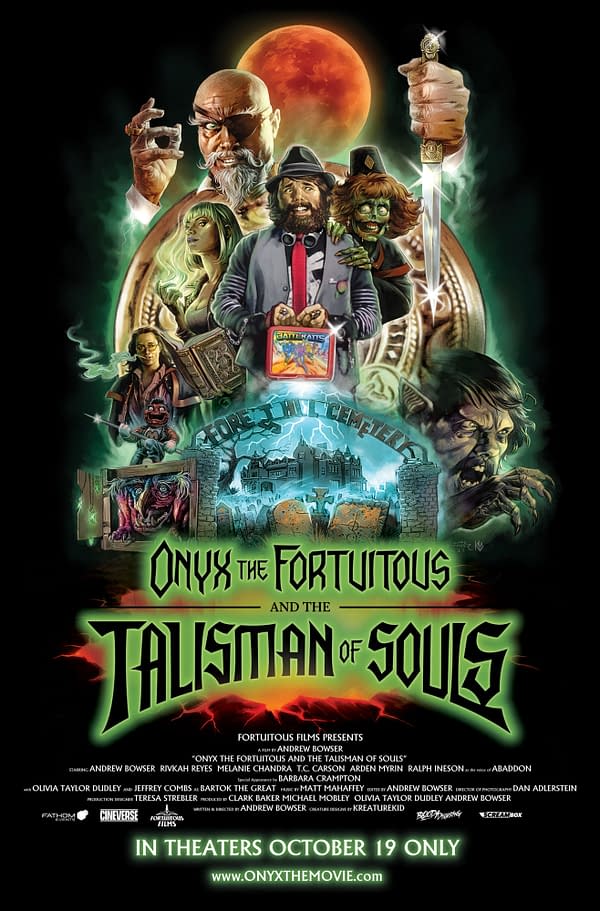
How do you feel the balance is for the use of practical versus CG in the cinema today as many 80s films relied on practical effects, but a more budget-conscious project has the luxury of using more CG?
There's a healthy hybrid. I'm more interested visually in the restriction that comes with practical effects. It's more challenging to think about covering an effect in a convincing way and editing practical effects in a convincing way. That excites me more, but I can't deny the freedom that digital work allows. Sometimes, it makes the camera language less interesting when it's not inhibited, and I don't know why that is. That might be personal taste, but I love the editing of 'American Werewolf in London' (1981) during the transformation sequence more than I would have loved an unbroken digital transformation with no cuts. It might be a personal preference, but something feels more believable when things are broken up and made to be convincing with the edit and sound design partnering. Our film has digital effects, but not to the extent that there are in larger-budgeted movies. The best way is from the perspective of the craft involved in practical effects. If we don't continue to explore that, fewer people will know how to do it. We need to continue to do practical effects so that teams are raised up to see that art form before it is something that can't be taught to people.
Cineverse & Fathom Events' Onyx the Fortuitous and the Talisman of Souls, which also stars Ralph Ineson, Rivkah Reyes, Arden Myrin, and Melanie Chandra, is in theaters.






